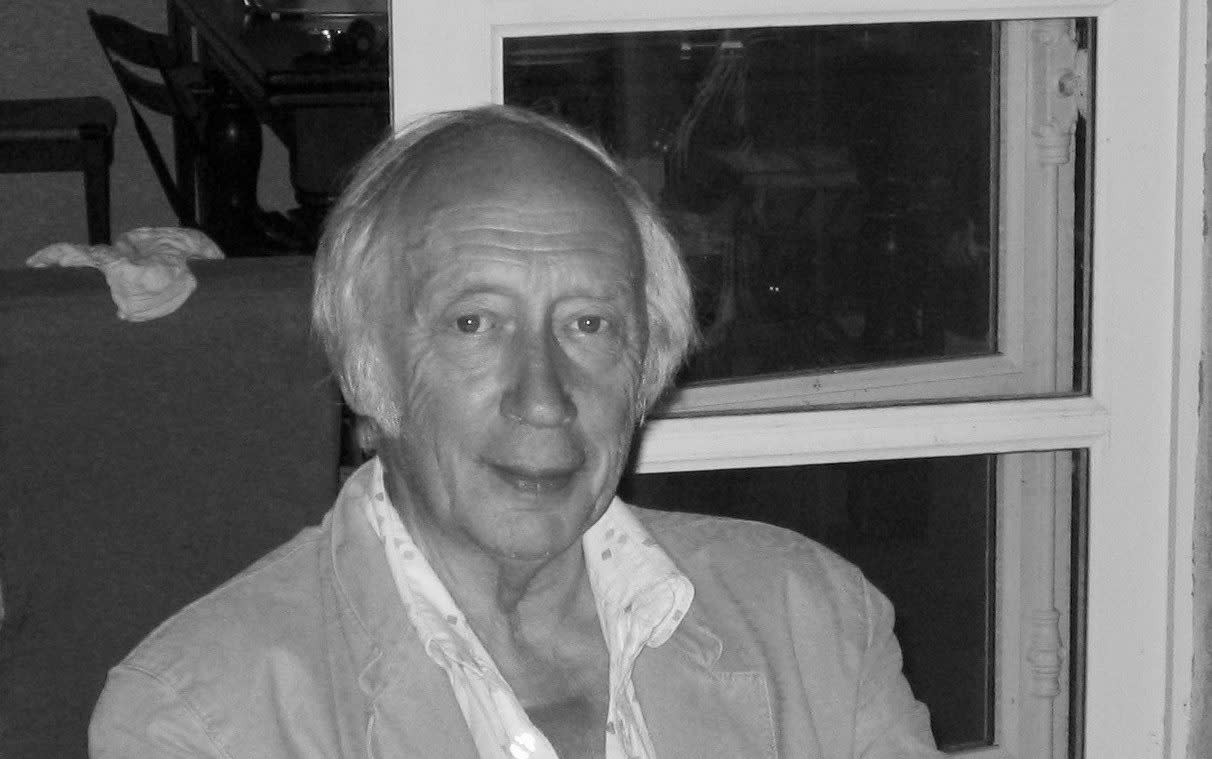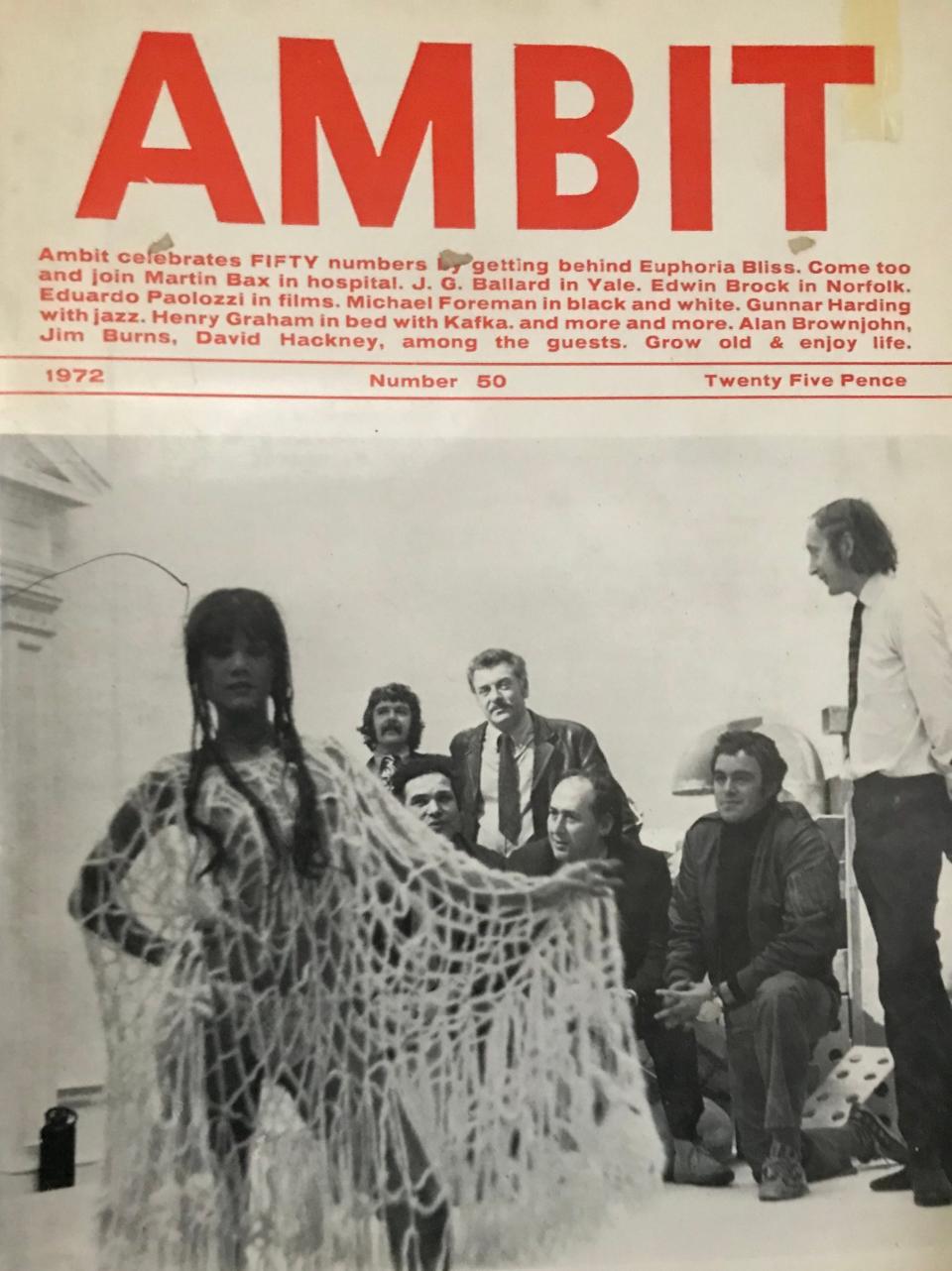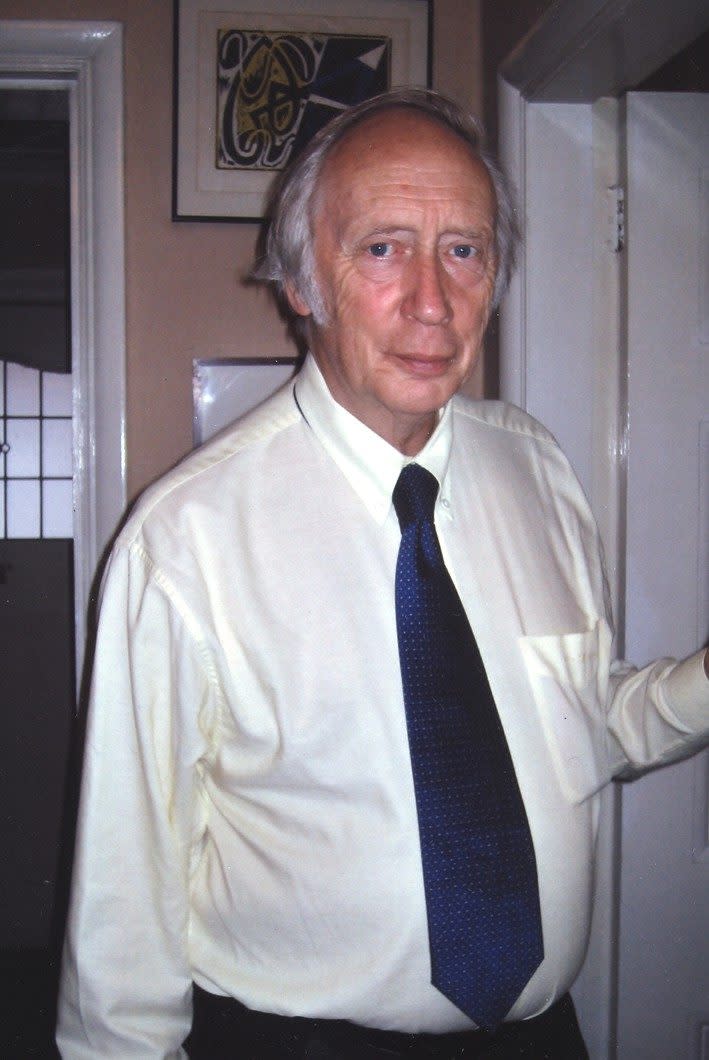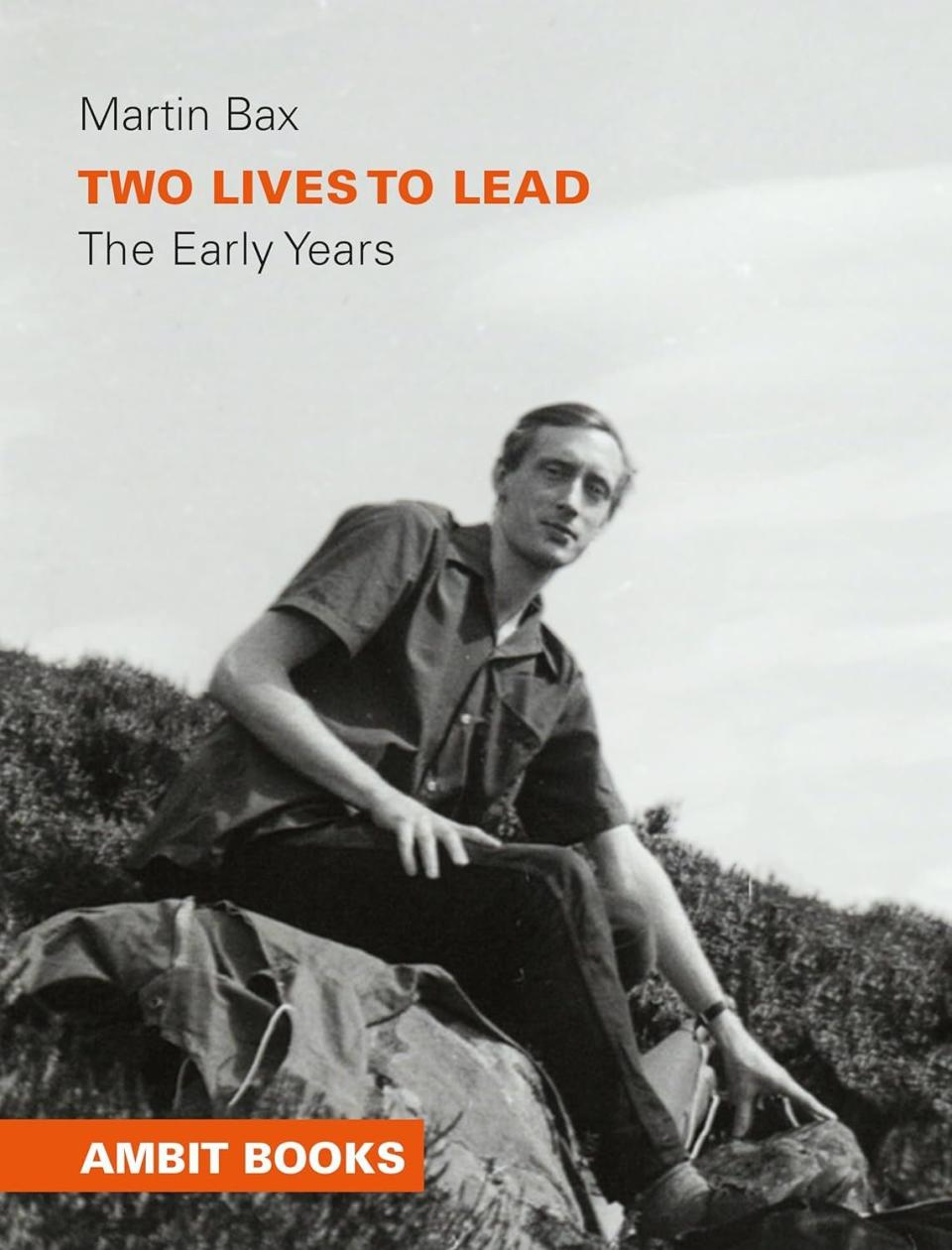Martin Bax, eminent paediatrician who also wrote novels and founded a sparky literary magazine – obituary

- Oops!Something went wrong.Please try again later.
- Oops!Something went wrong.Please try again later.
- Oops!Something went wrong.Please try again later.
Martin Bax, who has died aged 90, combined a career as an internationally renowned paediatrician with work as founder and editor for more than 50 years of Ambit, a distinctive and often controversial literary quarterly; he even found time to write novels.
Bax wrote extensively in medical journals and co-edited books about child disability, edited the journal Developmental and Child Neurology, was instrumental with Ronnie Mac Keith in establishing the popular Clinics in Developmental Medicine journal, of which he served as senior editor from 1978 to 2003 while working as a consultant developmental paediatrician in the NHS. He travelled the world working to improve standards of care, understanding and treatment of children with disabilities. But it was for his literary work that he became known to a wider readership.

He conceived Ambit while still at medical school as an antidote to what he called “the prevailing mood of Angst and Ennui” in 1950s British society. “I’d been interested in the writer John Middleton Murry [who ran] a magazine from about 1910 onwards for two or three years called Rhythm that attracted writers like DH Lawrence, and Katharine Mansfield,” he recalled in 2002. Murry’s idea had been to produce a magazine in which literary and visual material would complement each other, and that provided the template for Ambit’s mixture of poetry, photographs, short stories and drawings.
Bax’s aim was to provide readers with a “frisson” by coming up with “something fresh and exciting with each number, irrespective of whether the authors are known or not”. The first edition, published in June 1959, consisted mainly of copy cajoled from friends and acquaintances. Bax was concerned that more promising writers might not send in material, “but in fact they did after seeing Ambit”.
The magazine soon attracted attention as a showcase for radical new writers, poets, artists, illustrators and photographers, developing a reputation for mixing the erotic and the irreverent and pushing the boundaries of acceptability. Early recruits included members of The Group, writers and poets who had been brought together at Oxford by Philip Hobsbaum, including George MacBeth, Peter Redgrove, Peter Porter, Fleur Adcock and Alan Brownjohn. Other contributors included Ivor Cutler, Eduardo Paolozzi, William Burroughs and JG Ballard, whom Bax first met in 1965 at an exhibition Ballard was organising of crashed cars.

In the 1960s Ambit’s edgy irreverence regularly got the magazine into trouble. During the 1968 Chicago riots, Bax received a visit from the police following complains about a cover photograph of the Statue of Liberty being raped by a policeman – “elegantly drawn by Mike Foreman”. And Bax recalled being “strongly advised” not to publish some drawings by David Hockney of “men in a club in Amsterdam” – advice he ignored.
The Swiftian intentions of such JG Ballard short stories as “The Assassination of John Fitzgerald Kennedy Considered as a Downhill Motor Race” (1966) and “Plan for the Assassination of Jacqueline Kennedy” (1967) seemed to pass some people by. Randolph Churchill demanded that the Arts Council withdraw the magazine’s small grant on the grounds that the stories were offensive to Americans.
Ballard also did a nice line in fictional advertisements, which he placed in Ambit, and for which he paid as his way of contributing to its shaky finances. One typical Ballard ad, for something called “neural interval”, was accompanied by a photograph of a woman in bondage.

Ambit got into trouble again when it launched a competition for the best fiction or poetry written under the influence of drugs. “Lord Goodman, an intimate of Prime Minister Harold Wilson, raised the threat of prosecution,” Bax recalled. “In fact, we were equally interested in the effects of legal drugs... The competition, and the £40 prize which I offered, was won by the novelist Ann Quin – her drug was the oral contraceptive.”
Under Bax’s editorship Ambit maintained its reputation even though, inevitably, it lost some of its ability to shock, one commentator remarking as early as 1970 that the publication and the more well-established London Magazine were “much more like each other than they used to be”.
“It’s hard to think of another magazine that divides its weight so equably between poetry, prose and art,” wrote Gerald Mangan in the Times Literary Supplement in 2010. “They seem to spark off each other, not just literally in illustrations of the writing, but in juxtapositions that conjure certain moods for reading.”
Despite publishing the work of thousands of poets, fiction writers and artists, Ambit remained a small, shoestring enterprise, with Bax editing it at his home in Highgate after working at his “day job”, alongside a three-headed editorial team which included, over the years, Ballard and Paolozzi, Edwin Brock, Carol Ann Duffy and Henry Graham, though there were never such things as editorial conferences.
It remained the best place for young writers, poets and illustrators to send their work with the hope of seeing it alongside better-known names, even though many failed to make the cut. As Geoff Nicholson, another sometime co-editor, observed in a 1998 issue, sifting through submissions was like riffling through the postbag of a US fetish publication called Satyricon: “There are submissions from people driven by private and inscrutable obsession, writing that is pretentious or incompetent or too arty or too pornographic, yes, exactly like Ambit.”
Bax retired as editor in 2013, and the magazine eventually ceased publication last year after six decades and 249 issues, sad news, as one commentator observed, for those who had grown used to its idiosyncrasies.
Martin Charles Owen Bax was born at Walton-on-Thames, Surrey, on August 13 1933 to Cyril Bax, a barrister and civil servant in the Ministry of Health and Eleanor, née Bayne, who was active in the Mothers’ Union. His paternal grandfather, Ernest Belfort Bax, was a close friend of William Morris and a founder of the Fabian Society.
From Dauntsey’s School, Wiltshire, he trained in Medicine at New College, Oxford, and Guy’s Hospital, where he became a lecturer at the Medical School in 1961.

He went on to serve as director of the Community Paediatric Research Unit at St Mary’s Hospital Medical School (1982–85), then as Medical Director of the Community Paediatric Research Unit at Westminster Hospital Medical School, subsequently Imperial College School of Medicine (1985–2003), where he was also a senior lecturer and, after his formal retirement in 2001, emeritus reader.
From childhood, Bax had always enjoyed writing and he went on to publish two engagingly quirky novels. The Hospital Ship (1976), featuring an atomic-powered ark crewed by medical specialists which picks up the traumatised and often psychotic survivors of an unspecified Armageddon which has destroyed all individual and social stability, acquired a cult following. Love on the Borders (2005) followed a young woman walking the length of Offa’s Dyke in memory of her murdered mother, recalling old lovers while conjuring up new ones from her imagination, including King Offa himself.
In the 1970s, using text from The Hospital Ship, Bax worked with the jazz trumpeter Henry Lowther to develop the Vietnam Symphony, which was performed at the ICA against a backdrop of a kaleidoscope of images projected by Eduardo Paolozzi, and subsequently broadcast on BBC Radio 3.
Memoirs of a Gone World (2010), a collection of Bax’s short stories, many sexually charged, many surreal, included one, originally published in Ambit in 1968, which began with the words: “It was Caroline who sounded the first note of alarm. She was copulating with a man when his penis broke off at the root. The affair had been a casual one…” The book was longlisted for the Edge Hill prize.

Bax also wrote a children’s book, Edmond Went Far Away (1988), in which a little boy says goodbye to all the animals on the farm and goes exploring to the “far away” land just over the hill. The Collected Editorials by Martin CO Bax from Developmental Medicine & Child Neurology 1961–2003 was published by Mac Keith Press in 2004, and Two Lives to Lead: The Early Years, Bax’s memoir of the years 1933-1976, was published in 2018.
Bax was a Fellow of the Royal Society of Literature and served as chairman of the European Academy of Child Disability from 2000 to 2008 and as Life President of the Society for the Study of Behavioural Phenotypes. He received the Anderson-Aldrich Award of the American Academy of Paediatrics and the Distinguished Service Award of the American Academy for Cerebral Palsy & Development Medicine.
In 1956 he married Judy Osborn, who went on to be a headteacher and Labour councillor. She died in 2015 and he is survived by their three sons.
Martin Bax, born August 13 1933, died March 24 2024

